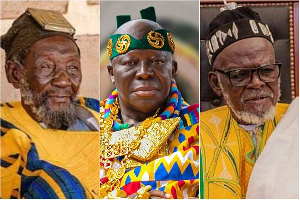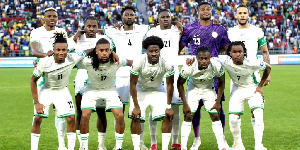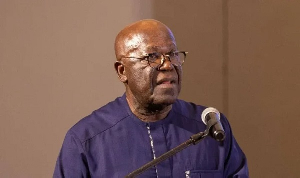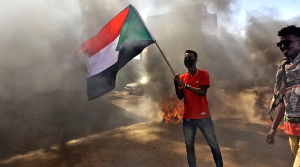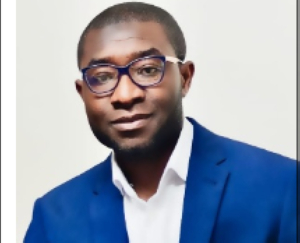By Dr. Michael J.K. Bokor
mjbokor@yahoo.com
August 29, 2009
Many public appearances and utterances of Flt.-Lt. Jerry John Rawlings, our former President, have stoked fires within the period. In all these appearances and utterances, he has touched raw nerves and drawn attention to himself as someone who is not only ill-at-ease but who is also refusing to listen to reason. As Kwesi Pratt, Managing Editor of the Insight newspaper, put it, Rawlings is narcissistic. Many people agree with him. That’s a big indictment. What is Rawlings’ worry at all?
For all the 19 years that he ruled Ghana, he enjoyed power and privilege and didn’t have to worry about the bare necessities of life—the state provided all the comfort that he and his family needed. Then, after handing over, his “friends” took charge of getting his children the best education that one would wish for his/her children. In other words, in terms of material benefits of life, Rawlings has no problems to make him lose sleep. Most Ghanaians wish they could get such privileges in life. But wishes are not horses for beggars to ride. Many eat just to survive and lose sleep because they can’t support their families. Our democracy seeks to take care of such problems, right?
Having known JJ Rawlings in various circumstances since 1979, some of us think that he is fast becoming an albatross and needs to turn himself around for the better. About a month ago, he told a delegation of the chiefs and people of the Aflao Traditional Area that he had decided not to criticize the Mills government anymore. Then, just last week, he was at the Prempeh Assembly Hall, Kumasi, doing the very thing that he had vowed not to do. Is that how to behave as a former Head of State?
In those utterances in Kumasi, he did much damage to President Mills and those Ministers he labeled as “hypocrites.” Coming from him, such utterances are intriguing, even if politically unwise and spiteful. Who, in politics, is not a hypocrite? I am yet to come across a politician with a clean conscience!! More importantly, those utterances have huge negative fallouts for the NDC administration. Already, political opponents are spreading the message of a “one-term NDC government under Mills.” Criticizing those in authority is good but when it is done through Rawlings’ kind of means, it raises more questions than answers. In that circumstance (and many others), Rawlings acted as if he didn’t have any other means to convey his sentiments to the very government that he labored to see in power. Then again, he acted against his own vow. So, who does he think he is fooling?
He may consider himself a “strong man,” but this posture is misplaced. It will not help him or the country. In the contemporary global political dispensation, countries can make progress only when they allow their socio-cultural, political, and economic institutions to function properly. Ghana too needs strong institutions, not “strong men,” to facilitate its development efforts. At least, that was the most important message that the visiting US President Obama gave Ghanaians when he interacted with them in July, this year.
The historical epochs in which “strong men” controlled and determined the destinies of their empires or countries are gone forever, which Rawlings should have known by now. But he doesn’t and still sticks to this “strong man” mentality. He thinks everybody should be at his beck and call. That’s his main problem.
I am no psychologist to attempt scrutinizing the elements that constitute Rawlings’ personality. I can only interrogate his personality on the basis of the practical demonstration that he gives us of his cognitive and motor abilities. On that score, I want to hazard a guess to suggest that whatever I know about Rawlings is what he himself has given me to know. And I know that he is over-reaching himself.
From an observation of the elements that he has displayed so far and, knowing very well that he has already set trends by which we can predict his lines of action, I want to say that Rawlings is fast establishing himself as a highly controversial person, which is not good for our democratic experiment. He is at loggerheads with his political opponents and has extended that bad blood situation to his own party over the years. The problems that some of the ex-PNDC functionaries had with him and the formation of the National Reform Party and the Democratic Freedom Party out of the NDC alone is enough to raise eyebrows. Now, he sees people in President Mills’ government with whom he must butt heads. What will he or the NDC gain from this display of wanton mischief? Granted that he presided over the transition from a military-oriented system of administration to the democratic one in 1992, one cannot fail to give him credit for his untiring efforts. His contributions to this democratic experiment are noteworthy and anybody who attempts to erase them from our country’s history will be doing much injustice to him. I acknowledge those contributions and commend him for helping the country enjoy stability, even before or when he ceded power to his arch political opponents constituting the Danquah-Busia conservative politicians. What he did on January 2001 hit the headlines and will continue to be cited as a shining example.
Although he was at loggerheads with the Kufuor administration and insisted on making his voice heard on national issues, he still enjoyed the support of many Ghanaians, as can be inferred from the condemnation of the Kufuor administration for stripping him of his privileges. His contributions to the success of the NDC and the return to power of the party he founded are still fresh in our minds. In effect, Rawlings has achieved much for both his party and the country and should by now have been satisfied with those accomplishments. But it appears he is not. Why is it so?
Many factors may account for this state of affairs; but I think that the most important one may be that he is at pains to come to grips with himself and the country that he thinks he loves. Having spent much of his youthful energy between June 4, 1979 and September 24, 1979 as well as between December 31, 1981 and January 7, 2001, one would expect him to be exhausted enough to stand aside to allow those chosen by Ghanaians to rule the country to do so in peace. But he hasn’t done so yet.
In many countries worldwide, former rulers find other things to do than pestering those in government after them. That’s how they manage to claw back public goodwill. Why can’t Rawlings learn from them? Is he deceiving himself that he is more patriotic than all other Ghanaians? What does he have to recommend him as a “super-patriot” that all other Ghanaians lack, which, in effect, may be his motivation for wanting to torment all others in positions of trust as he bulldozes his way through the political landscape?
No one has any justification to claim that he/she loves Ghana more than his or her compatriots. Any claim of that sort is not only spurious but is also dangerous. Before we were, Ghana had been and it will continue to be after us, granted that no accident of history occurs for the country to fade away or be annexed by a more powerful one.
In this sense, then, it becomes a national duty to call Rawlings to order. I want to say that if he insists on creating bad blood here and there, left and right, he will not only be expending energy on eroding respect and credibility for himself but he will also be setting himself up to be written off like a bad debt. At that point, he will become a complete liability whose back everybody will want to see. It will not take long for his contributions to Ghana’s democratic experiment to be overshadowed by negative impressions about him. People will set those contributions aside as the society turns to condemn him over his waywardness. Is that what he wants to happen to him?
I can remember very well Shakespeare’s Coriolanus, whose powerful words (“As for my country will I shed my blood”) confirmed his love for his country but did not save him from the wrath of the people because of his refusal to listen to reason. The time has come for Rawlings to do a very serious introspection to rein himself in. If he does so, he will realize that he has already reached the pinnacle and must remain there. If he fails to do so, the next thing will be a huge fall. It is simple. If while climbing a tree you insist on going beyond the top, the earth will be waiting for you.
If Rawlings does a serious soul-searching, he will realize that the doors to the Presidency are closed to him forever and there is no way anybody will want to have him back as the Head of State. Ghanaians are not prepared to dance to an abomination. That’s why it is imperative for him not to rock the boat. He must take control of himself and behave the way a former ruler is expected to conduct his/her life.
We all know that even though the sun is powerful, it doesn’t control the sky throughout the period on earth. The laws of Nature demand that it should give way to other forces in the firmament because nothing (not even human beings) can reign forever on the throne of time. If the sun claims that it has power over the moon, let it shine in the night. It doesn’t; so should it be with human beings too. Again, we know that even the fiercest leader in the world is overcome by sleep. There is time for everything, which Rawlings must know and appreciate as a useful insight. It beats my imagination why he is still up and about, creating anxious moments for anybody who is not on the same page with him. Even if he considers himself as the sun, he must learn to give the moon its chance to shine too when it should. He should allow his history to be written after his death, not when he is alive today!
Opinions of Tuesday, 1 September 2009
Columnist: Bokor, Michael J. K.
Why make yourself THE problem, Mr. Rawlings?
Entertainment



